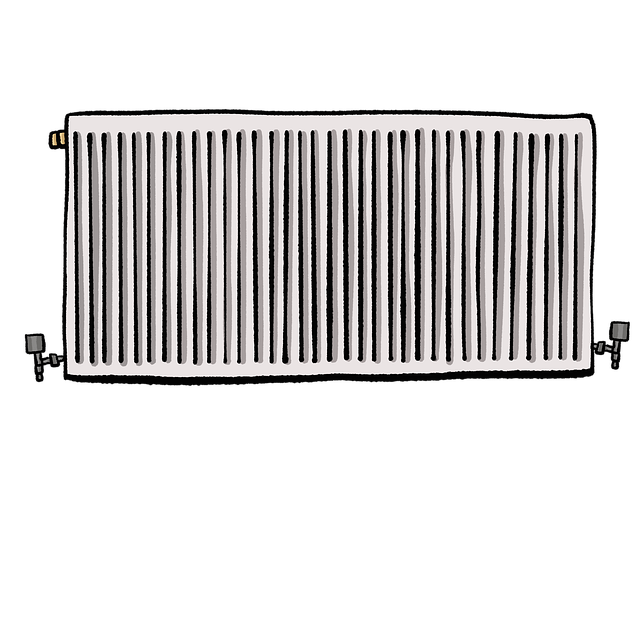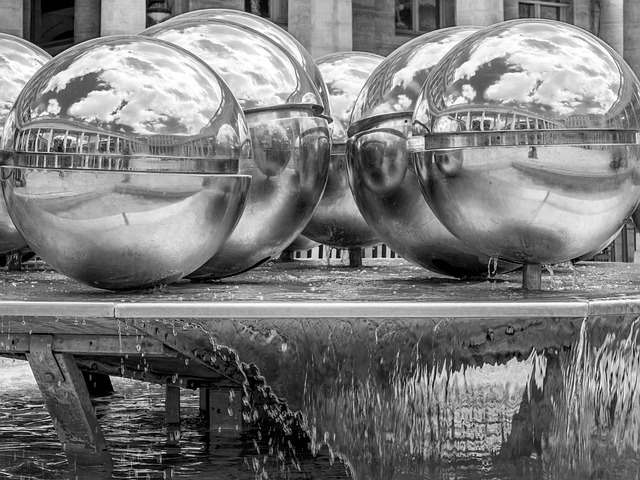Maximizing energy efficiency in central heating systems through ratings like SPF and AFUE is key for cost savings and environmental sustainability. Modern technologies like condensing boilers and heat pumps offer superior efficiency. Property needs assessment, fuel type comparison, and professional advice are crucial. Investing in efficient systems reduces bills by up to 30% and cuts carbon footprint, providing long-term economic benefits for central heating installation.
Choosing an energy-efficient central heating system is a smart step towards reducing your energy bills and environmental footprint. This comprehensive guide navigates the process, from understanding energy efficiency in heating systems to exploring various types of central heating options suitable for homes. We delve into crucial factors during the installation process and highlight the long-term benefits and savings of efficient heating solutions, empowering you to make an informed decision for your central heating installation.
- Understanding Energy Efficiency in Heating Systems
- Types of Central Heating Options for Homes
- Factors to Consider During Installation Process
- Benefits and Long-Term Savings of Efficient Heating
Understanding Energy Efficiency in Heating Systems

Understanding Energy Efficiency in Heating Systems
When considering a central heating installation, it’s vital to look beyond the initial cost and focus on energy efficiency. Modern heating systems come with ratings that indicate how much energy they consume and convert into heat for your home. The most common rating to look out for is the Seasonal Performance Factor (SPF) or the Annual Fuel Utilization Efficiency (AFUE). These ratings help you compare different models and choose one that aligns with your eco-friendly goals and saves on utility bills.
A plumber Bromsgrove specialist can guide you in selecting the right system, but it’s also important to understand basic concepts like adjusting thermostat settings for energy efficiency. Programming your thermostat to lower the temperature when you’re away or during sleep can significantly reduce energy usage. Additionally, troubleshooting any issues with your new system promptly ensures optimal performance and minimizes energy wastage. Remember that an energy-efficient central heating system is a long-term investment in both comfort and sustainability.
Types of Central Heating Options for Homes

When considering a central heating system for your home, there are several efficient options to explore. Modern technology has revolutionized heating systems, offering eco-friendly and cost-effective solutions. One popular choice is condensing boilers, which extract heat from exhaust gases, improving energy efficiency and reducing carbon footprint. These boilers are known for their high coverage, ensuring consistent warmth throughout your space.
Another emerging option is heat pumps, which transfer heat from the external environment to your home during winter and vice versa in warmer months. Heat pumps are highly efficient as they utilize renewable sources of energy, such as ground or air temperature, for combustion. This makes them an environmentally friendly choice and a great long-term investment for central heating installation.
Factors to Consider During Installation Process

When considering a central heating installation, several factors come into play to ensure an energy-efficient and cost-effective solution. One of the primary responsibilities is evaluating your property’s unique needs and the available space for the system. Factors like the size of your home, insulation quality, and current heating methods significantly impact the choice of equipment. It’s crucial to consult professionals who can guide you through the process and offer tailored advice.
Comparing fuel types and prices is another vital step. Different fuels have varying efficiencies and environmental impacts. Modern central heating systems often incorporate advanced technologies like heat pumps or condensing boilers, known for their superior energy efficiency. Upgrading to these modern types can significantly reduce energy consumption and long-term costs, making your home more environmentally friendly.
Benefits and Long-Term Savings of Efficient Heating

Choosing an energy-efficient central heating system isn’t just an investment in comfort; it’s a strategic move to significantly lower your energy bills and reduce your carbon footprint over time. These systems are designed to heat your home more effectively, minimizing waste and maximizing efficiency. In the long run, this translates into substantial financial savings. Efficient heaters typically consume less fuel, lowering your overall heating costs by up to 30% compared to older models.
Beyond immediate cost savings, an energy-efficient central heating installation contributes to a greener environment. By reducing energy consumption, these systems play a vital role in mitigating climate change. When considering what steps are involved in installing a new central heating system (whether DIY or professional assistance), remember that the process is not just about fitting hardware; it’s about making a responsible choice that promises both comfort and economic benefits for years to come.
When choosing an energy-efficient central heating system, it’s crucial to consider your home’s specific needs, available space, and budget. By opting for a modern, high-efficiency model and ensuring proper installation, you can significantly reduce energy consumption and long-term costs. Remember, a well-planned central heating installation is an investment that will pay off for years to come, providing both comfort and environmental sustainability.
